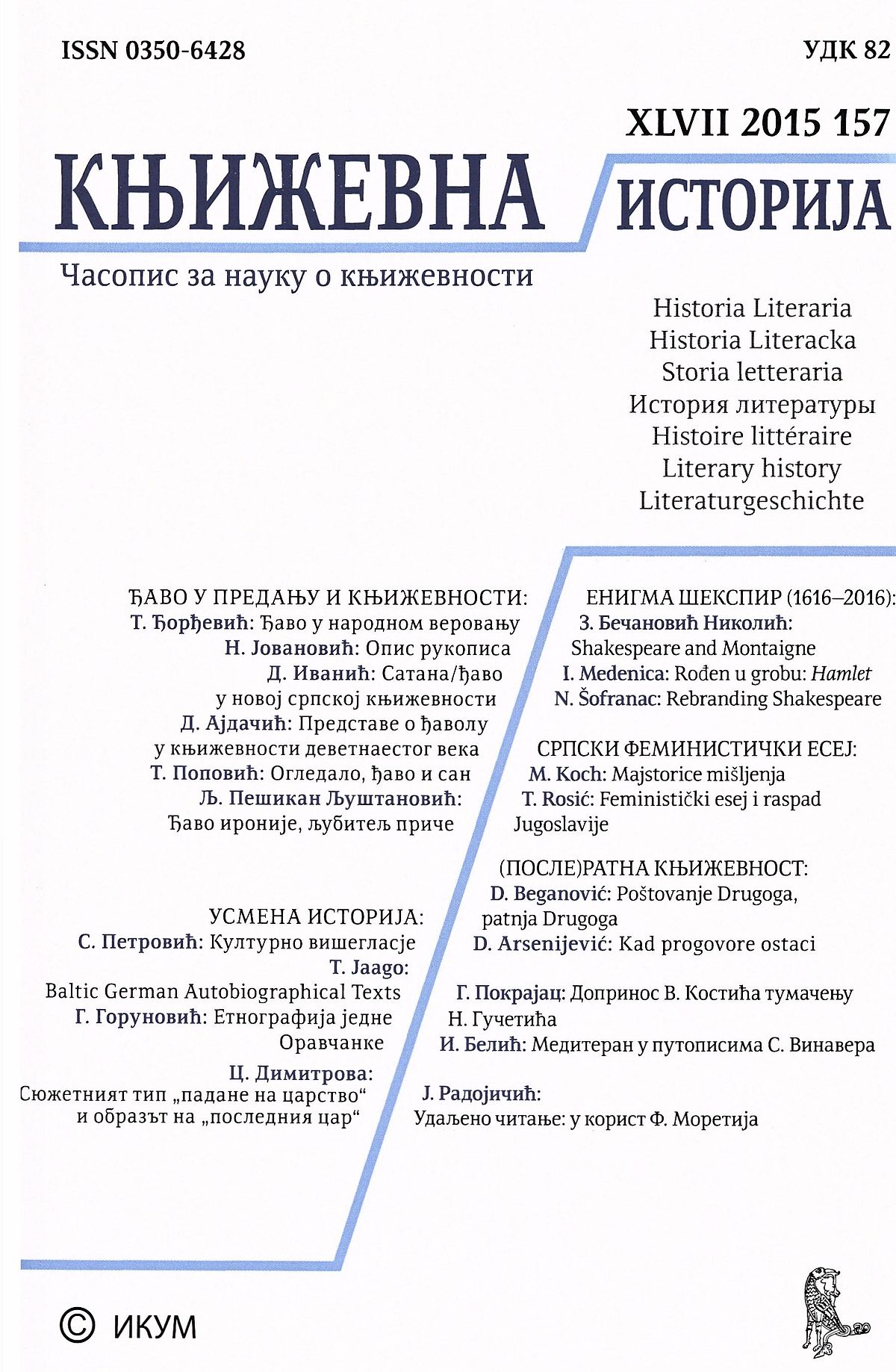Медитеран у путописима Станислава Винавера
The Mediterranean in the travelogues of Stanislav Vinaver
Author(s): Isidora B. BelićSubject(s): Theory of Literature
Published by: Институт за књижевност и уметност
Keywords: Mediterranean; avant-garde; travelogue; culture; Other; identity
Summary/Abstract: The intention of this paper is to analyze the image of the Mediterranean in the Stanislav Vinaver’s travelogues Izlet po Jadranskom i Sredozemnom moru (1927) and Konačna Venecija (1938) by applying the methodological postulates of imagology. With reference to the importance and status of travelogues in Serbian avant-garde literature (a travelogue was regarded as a marginal genre in earlier epochs) and Vinaver’s opus, it shows that the Mediterranean, present in the entire oeuvre of one of the leading avant-garde artists, is a field in which he scrutinizes many issues – from art, religion and civilization to cultural and personal identity which is (re)defined in the encounter with the Mediterranean heritage – and could therefore be regarded as a constituent part of his poetics. The Mediterranean, which until the discovery of America in 1492 and the travel around the Cape of Good Hope from 1497 to 1498 was the epicenter of the world, is for the travelogue writer Vinaver ambivalent space. It is composed of the neglected military cemeteries in Corfu, debauchery of Marseilles, disharmony of modern life which overwhelmed Sicily, as well as ancient layers of Pompeii and Carthage, which are the occasion to define art and emphasize the superiority of antiquity, which emanates through the centuries and offers comfort and salvation. In Vinaver’s vision art must not be reduced to decorative dimension; it should carry the mark of one who creates it, a reflection of his soul – it has to be modern and timeless at the same time. Through reflections on the clash of civilizations, antagonism between North and South, criticism of machinery and technological progress, the author enters into the dialogue with Venetian and Japanese painters, Wagner, Goethe, Byron, Chinese poets, oriental stories – and it illustrates exactly what the Mediterranean is – an amalgam of cultures, layers of history and civilization. Vinaver’s awareness of Byzantine, Mediterranean heritage and continuity of his own culture is of great importance, which is most obvious in the travelogue Konačna Venecija. Although the travelogue writer’s vision in the encounter with the Other is most frequently wide and humanistic, with the inevitable stereotypes, at certain points, especially in the encounter with the Arab world, in Africa, we notice the lack of tolerance and the image of Other which corresponds to the Orientalistic discourse. Vinaver’s revelatory journey is both cultural fact and identity quest. Full of knowledge, an open mind, while traveling our writer occasionally falls into the traps of stereotypes, but his great achievement is the fact that he recognizes the Mediterranean figure of his and our culture, as well as he observes the identity as a creative mixture of both national and European. In this way he broadens our literary horizons and reveals relations that are (temporarily, we hope) lost.
Journal: Књижевна историја
- Issue Year: 47/2015
- Issue No: 157
- Page Range: 271-290
- Page Count: 20
- Language: Serbian

